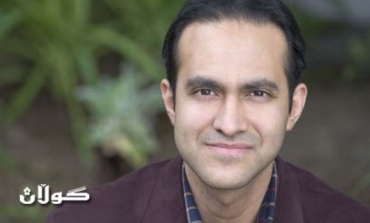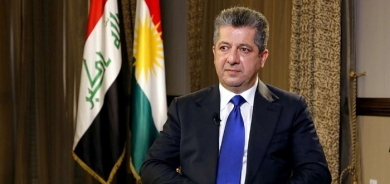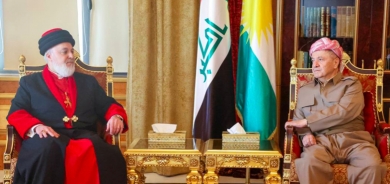Saleem H. Ali to Gulan Magazine:The key to building the middle-class is coupling education with economic development
June 11, 2012
Exclusive Interviews

Saleem H. Ali is Professor of Environmental Planning and Asian Studies at Rubenstein School of Environment and Natural Resources. Director; Institute for Environmental Diplomacy and Security, James M. Jeffords Center for Policy Research, the University of Vermont. We contacted the Professor Ali to discuss democracy building process in the third world countries and he replied to our questions in an exclusive interview to Gulan Magazine as the following:* The main problem in the Third World Countries during the Democracy Building Process is the lack of the Middle Class, and according to the liberal democratic countries democracy can’t survive without the existence of middle class. The question is, in your view; how the middle class can be built during the democracy building process?
- The key to building the middle-class is coupling education with economic development. Universities are incubators for innovation and sadly they have been neglected in much of the Third World, until recently. It is heartening to see countries like Qatar now investing in regional education but far more needs to be done across the board.
We also need to have a positive safety net in place to allow for communities to flourish beyond their basic needs. This is only possible if the hyperwealthy pay their taxes. Without tax receipts no government can provide such a safety net and in much of the developing world the wealthy find ways of evading taxes. This has to change by preventing loopholes in international financial transactions and capital flight from taking place. Banking reform in tax havens like Switzerland or The Cayman Islands is also needed in this regard.
* Another aspect to promote democracy in the third world countries would be through initiating the human development process, meaning; capacity building and strengthening the potentials and abilities of individuals of the society in order to make them be able prove themselves and run the institutions of the society. In your view; how the Human Development Process can success and how far do you think that this process is important for democracy?
- The human development index developed by Pakistani economist Dr. Mahbub-ul-Haq is still used as metric of prosperity by the United Nations Development Program. Income, Education and Health indicators such as infant mortality or life expectancy can be used in this regard. Such metrics are important but we also need to couple them with governance indicators such as transparency and freedom of the media to get a true picture of human development capacity. Unfortunately, there is still a lot of ideological reluctance to allow for such human development indicators to take root, particularly in the Middle East. Freedom of expression should not be considered a threat but rather an opportunity for brainstorming new ideas and critiquing moribund views that can allow for human development to flourish.
* Many observers think that; the rule of law and the principles of liberalism are important in preserving the rights of property, freedom of expression, political participation, and preserving market economy in the very beginning of the democracy building process. In your opinion; how far do you believe that the rule of law is important to put the principles of liberalism in place in the society?
- The rule of law is essential but law can also be abused to curtail innovation or freedom. Legal systems need to be accountable and adaptive to allow for changing times. When religion or other absolutist ideologies are used as the basis for law, it is very difficult to be adaptive and any rule of law which ensues from such approaches is likely to stifle innovation.
Religion should be an important compass for personal morality but should not be the basis for governance and laws in a dynamic world.
* Every rebuilding stage in the developing countries needs sort of political stability, meanwhile; the political parties in the developing countries are the reason behind the political instability. In your view; how political stability can be achieved in the rebuilding stage?
- Democratization is a messy but necessary process. Political parties have teething troubles in reaching consensus and forming coalitions. Providing a culturally appropriate framework for political action is important and this can be done through constitutional framing. For example, in some cases direct election of a president (such as in the US) may be more appropriate than a parliamentary system or vice versa. In an ethnically fractured country multiple or revolving presidencies are appropriate as well.
* The bases of good governance are needed for rebuilding process to success in those countries, and building good governance requires strong institutions as well as collaboration and contribution from all the aspects of the society. In your view; how is it possible to build the grounds for good governance in the developing countries?
- Good governance needs both grassroots efforts and empowerment of civil society as well as top-down reforms. Convergence of these two processes needs to be constantly monitored through accountability measures. International norms are evolving in this regard and need to be strengthened.
* Last Question: The developing countries are suffering from poverty and low incomes. The question is, in your opinion; how a mechanism can be organized to decrease the poverty level and increase individuals’ income in the developing countries?
- I am a firm believer in fair globalization as a means of alleviating poverty. Trade can be done with care and international standards to reduce poverty. We see numerous examples of the positive impacts of trade in reducing poverty in much of East Asia. Such transformations can be replicated if we reduce perverse subsidies in rich countries and provide incentives for economic exchange that is appropriate for the ecology of specific regions.















